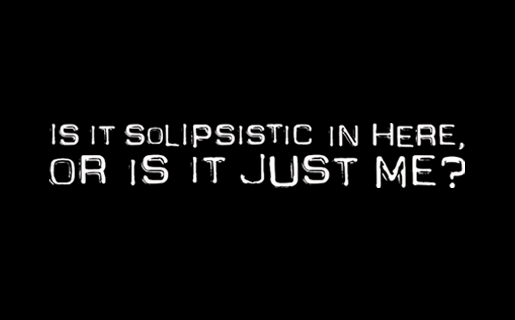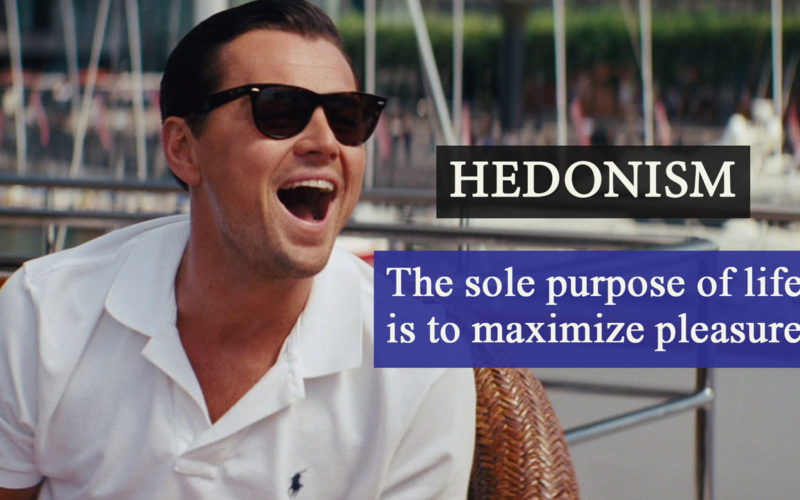- 714shares
- Share
- Tweet
- Facebook Messenger
Everyone has a philosophy even if we don’t know about it. Some are well defined, some not quite. Some are deep and well thought out while others could be a little shallow. We may not, at times, be able to express it in words but we all have our own philosophies.
Let’s take a look at some of most recognized outlooks towards life, theorized by eminent philosophers over the world and find out which school of thought do we belong to.
1. Hedonism – if pleasure is the only thing you live for

Hedonism is a philosophy that believes the only purpose of life is to gain pleasure. An ethical hedonist will do anything within his capacity to maximize the pleasures of life. Considering pleasure as the only intrinsically valuable aspect of life and living a life based on such terms does sound appealing. There are arguments against the philosophy deeming it superficial.
However, there are variants of the school of thought that makes it more complex. For example, Epicurean Hedonism is the philosophical quest to reduce the anguish caused by life and the fear of death. The Paradox of Hedonism, however, lies in the argument that constant pursuing of pleasure hinders the process of actually experiencing it.
2. Nihilism – if you believe in nothing

Nihilists believe that there is no value, motive or purpose to live and that the sense of morality or the judgement of right from wrong are based on man-made, arbitrary standards. It comes from a deeper realization that whatever we have learnt, observed and perceived from childhood does not have to be true and there’s absolutely no way that values, ethics, morals or knowledge can be understood in its genuine and authentic essence.
As a result, Nihilists not believe in anything, have no loyalties and if there’s something they affirm by, it is Nihil, which means “nothing”, a state of absolute non-existence.
3. Solipsism – if you think you’re the world

Unlike Nihilism, Solipsism is a bit more hopeful because it acknowledges existence. However, the metaphysical idea of the philosophy is that only the mind of an individual is real and anything outside the mind is just a projection of the of it and hence, nonexistent. Therefore, for a Solipsist, his mental state is the sole thing he has access to and he cannot confirm if the things he sees, hears, tastes and touches exist in reality.
The backdrop of the philosophy owes its roots to French philosopher, Rene Descartes’ “methodic doubt” whose burning words, “I think, therefore I am”, although much criticized, remains a vibrant illustration of the dubitable concept of universal existence as perceived by Solipsism.
4. Logical Atomism – if you think reality lies in simplicity

Developed by British philosopher, Bertrand Russel, the idea professes that “simple facts” make up the world and life as we know of it and these facts are just like atoms which cannot be broken down any further. Just as there are multiple layers of matter which when removed all finally leaves the atom, Logical Atomism believes the “simple facts” when stripped of their superficial layers let us understand how life unfolds.
The school of thought strives for the simplification of ideas until their elementary states are reached so that the truth can be achieved. It opposes the earlier philosophy of “Absolute Idealism” of Hegel which said nothing can be understood in parts without understanding everything first.
5. Stoicism – if you think hope is the opium of emotions

The stoics believe that that real virtue lies in not what a man says but in how he behaves. Stoicism claims that judgement is often manipulated by emotions, eventually leading us to sins. Therefore, a stoic practices the art of not having emotions at all.
Stoics consider themselves as a small part of nature and strives to live in harmony with it because according to stoicism, trying to resist nature will only garner frustration, disappointment and anger. A stoic is not affected by the adversities of life but endures them with stoic indifference. It is a philosophy that urges you to be prepared for the very worst and be absolutely calm about it.
6. Animism – if you think there’s soul in objects too

If you think you can communicate with your guitar, your old toys, the books, there’s a school of though that actually believes in you. Animism is a philosophy that believes not only plants and animals but inanimate objects have souls too.
While many claim regal Animism as a primitive philosophy appealing to people unexposed to science and progress, there are physicists who have formed a bridge between science and Animism. American physicist and author, Nick Herbert, argues that consciousness is not just a property of biological and computational systems but is an integral aspect of the physical world.
7. Presentism – if you think the present is all that matters

According to this philosophical school of thought, there is nothing called the past or the future and the only thing that exists is the present moment. According to Saint Augustine, the future is imaginary, the past is just a perception and the present is like an edge of a knife between the two where the concept of time is not included.
Philosophers believe that time cannot be present and past at the same time which makes it un-extendable. Therefore, it can be said that the words you have just read on this page will cease to exist once you bounce off the page – only to exist again when you come back and read it again.
8. Eternalism – if you think nothing is lost

This one is quite a contradiction to Presentism. The philosophy professes the idea that the past and the present are both real and so is the future. The past, present and future do not have to be in a linear progression and they could all be existent at the very same time in different dimensions.
The theory is also known by the terms “block time” or “block universe” because time is considered as a four-dimensional “block” which does not change. This view of reality claims that events of the past and the future are existent at the same time as present but can only be observed from specific locations.
So, if a tree is felled in the forest and no one sees it or hears it fall, was the tree there?
- 714shares
- Share
- Tweet
- Facebook Messenger




